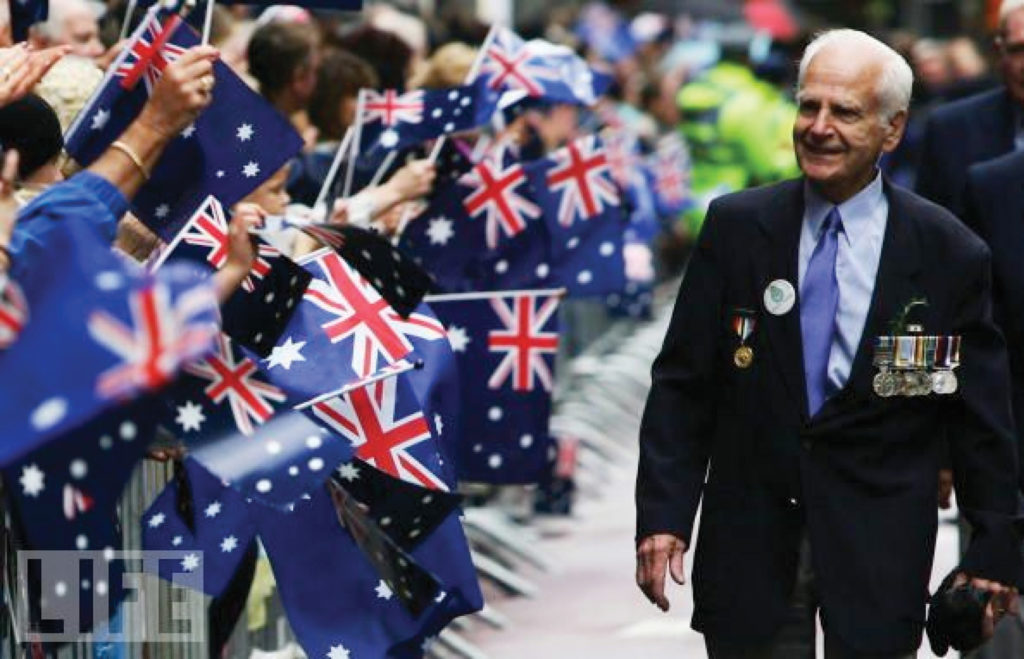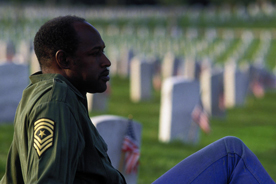War & Peace

People in the armed forces are called in a special way to be servants of peace. We can all do something to contribute to building up peace, by working to increase love and justice in our daily lives and wherever we find ourselves.
Each country has its special days set aside for the commemoration of its fallen soldiers. Not only do we gather to remember and pray for those who have died in conflicts, but we reflect on the horror of war and the courage of those who served or continue to serve their country and allies.
In Australia we have Anzac Day on April 25 and Remembrance Day on November 11.
The Catechism of the Catholic Church reminds us that citizens and all governments are obliged to work for the avoidance of war. However, “as long as the danger of war persists and there is no international authority with the necessary competence and power, governments cannot be denied the right of lawful self-defense, once all peace efforts have failed”. (2266)
The Meaning of Anzac Day
ANZAC stands for Australian and New Zealand Army Corps and ANZAC Day marks the anniversary of the first major military action fought by Australian and New Zealand forces during the First World War. Australia had been a federal commonwealth for only 13 years when the war broke out in 1914 and the courage, stamina and fraternal spirit of the ANZACS, especially at Gallipoli, made an impression on its allies.
Australia, a nation of just four million people, suffered the loss or injury of hundreds of thousands of young men. No wonder the ANZAC story became deeply ingrained in the fledgling national psyche.
ANZAC forces landed on Gallipoli in Turkey on 25 April 1915, with the aim of quickly securing the peninsula for the benefit of the allied navies and ultimately capturing Constantinople (now Istanbul). They met fierce resistance from the Ottoman Turkish defenders and the campaign became an eight month stalemate. At the end of 1915 when the allied forces were evacuated there were heavy losses on both sides.
During the 1920s ANZAC Day became established as a national day of commemoration for the 60,000 Australians who had died during the war. It now also embraces all the men and women who have died in active service and the associated dawn vigils, memorial services and marches are an important part of Australian culture.
Servants of Peace
People in the armed forces are called in a special way to be servants of peace.
The Catechism says that those, “who are sworn to serve their country in the armed forces are servants of the security and freedom of nations. If they carry out their duty honourably, they truly contribute to the common good of the nation and the maintenance of peace”. (2310)
And what is peace? We know it is not merely the absence of war or the maintenance of a delicate balance between powers.
Peace is a person. Christ, the Prince of Peace, is the one who gives us peace through his life, death and resurrection. It is by participating in his great work of peace that unites us with each other and with God that we, the Church and the living Body of Christ, also work for peace.
We can all do something to contribute to building up peace, by working to increase love and justice in our daily lives and wherever we find ourselves. For example, we might try to live more simply ourselves so that others can simply live, by supporting the work of international development agencies such as Caritas, and we can pray for our civic leaders.
We can watch some of the TV news with them if they are old enough and explain how wars and other avoidable catastrophes come about.
The Catechism says that it is “injustice, excessive economic or social inequalities, envy, distrust, and pride raging among men and nations (which) constantly threaten peace and cause wars”.
“Everything done to overcome these disorders contributes to building up peace and avoiding war.” (2317)
Parents have tremendous power to work for peace. We teach our children to prefer to be generous rather than self-indulgent, grateful rather than envious, and befriend lonely and overlooked children in their own communities.
Supporting our Troops Today…
There are approximately 3300 Australian Defence Force personnel deployed to 12 operations within Australia and overseas including in Afghanistan, East Timor, Egypt, Iraq, Sudan and the Solomon Islands.
- Send an email message of support to the troops at [email protected].
- Send a care package to a member of the Defence Force serving overseas. The Australian Defence Forces has established a special Post Office service and will cover the cost of postage for boxes weighing up to 2kgs. www.defence.gov.au/anzacday
- Make a donation to the RSL Australian Forces Overseas Fund. This fund provides packages twice yearly to defence force personnel serving overseas. The RSL packages include ANZAC biscuits, glucose confectionery, salted peanuts, dried fruit, muesli bars, cake, lollies, a letter of appreciation on behalf of all Australians, RSL State Branch contact details and membership contact details. Donations can be made through the RSL website, details available at www.rsl.org.au
As featured in the April 2011 edition of CathFamily E-Magazine.
For activities and recipes from this edition, see also:

